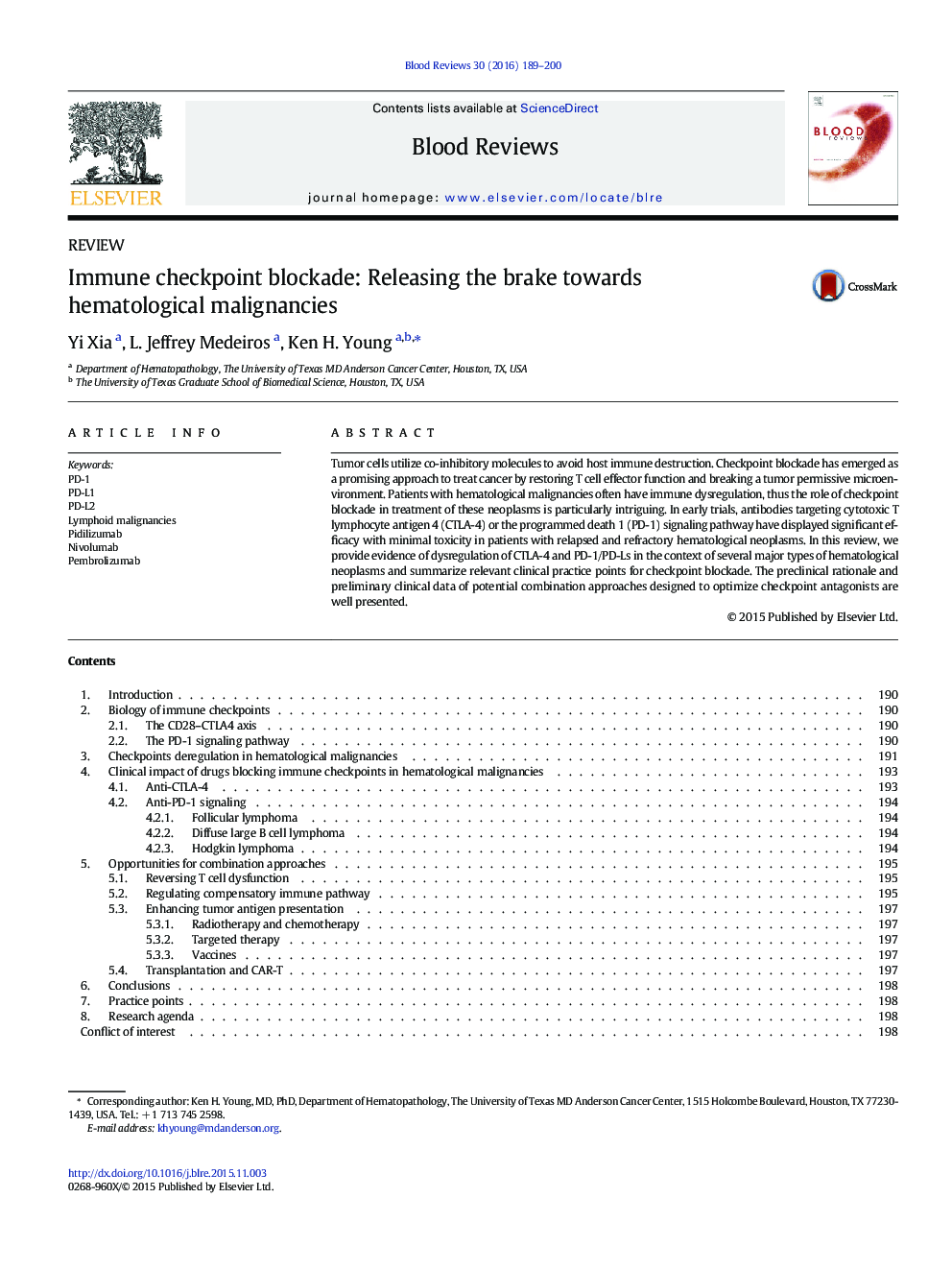| Article ID | Journal | Published Year | Pages | File Type |
|---|---|---|---|---|
| 2106108 | Blood Reviews | 2016 | 12 Pages |
Tumor cells utilize co-inhibitory molecules to avoid host immune destruction. Checkpoint blockade has emerged as a promising approach to treat cancer by restoring T cell effector function and breaking a tumor permissive microenvironment. Patients with hematological malignancies often have immune dysregulation, thus the role of checkpoint blockade in treatment of these neoplasms is particularly intriguing. In early trials, antibodies targeting cytotoxic T lymphocyte antigen 4 (CTLA-4) or the programmed death 1 (PD-1) signaling pathway have displayed significant efficacy with minimal toxicity in patients with relapsed and refractory hematological neoplasms. In this review, we provide evidence of dysregulation of CTLA-4 and PD-1/PD-Ls in the context of several major types of hematological neoplasms and summarize relevant clinical practice points for checkpoint blockade. The preclinical rationale and preliminary clinical data of potential combination approaches designed to optimize checkpoint antagonists are well presented.
